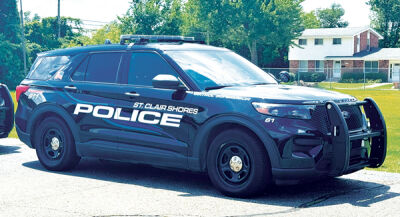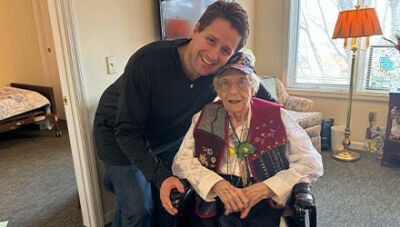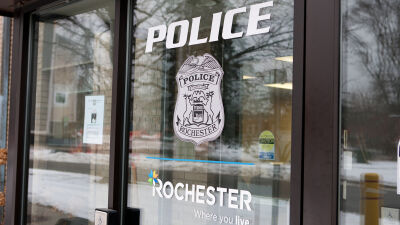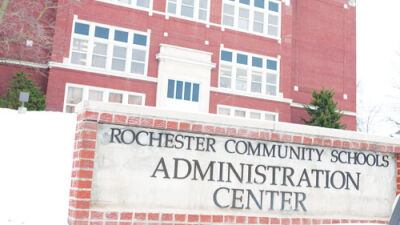
The St. Clair Shores City Council listened to the SERESA annual report on June 2.
Photo by Alyssa Ochss
ST. CLAIR SHORES — At their meeting on June 2, members of the St. Clair Shores City Council received the South East Regional Emergency Services Authority’s 2024 annual report.
SERESA Executive Director Tony Leese presented the item to Mayor Kip Walby and the City Council.
According to items attached to the agenda, the average 2024 call duration lasted around one minute and 54 seconds with the answer time taking around 4.4 seconds. Among the calls received, 98.64% were answered in 15 seconds. They received 95,231 calls through their ten-digit number, 68,367 outgoing calls, 3,102 through a landline, 69,236 calls through a wireless device, 5,715 calls through voice over internet protocol, and 247 texts to 911.
Leese stated in the last year, SERESA expanded its leadership and was able to expand the quality assurance program which allowed them to review certain calls.
“You’ll see in the statistics that we processed 120,000 (calls) every single year,” Leese said. “That’s quite a number.”
They identify trends and other issues in the calls.
According to Leese, SERESA will retain its accredited center of excellence title for their medical dispatch.
SERESA also improved and replaced workstations over the past year.
“It goes a long way when it comes to making improvements where our dispatchers sit for 12 hours, sometimes 16 hours a day, to have a clean, modern working environment where technology is right there ready to go and not outdated equipment,” Leese said.
Training has also increased in 2024 with 26 classes for dispatchers to attend. This is up from the 16 they had the previous year.
They want to expand their in-house mock call and dispatch training with a focus on low-frequency, high-risk calls.
“This is one-on-one, scenario-based training that we can do in the center that we don’t have to send people out to,” Leese said.
Leese said they are also committed to improving technology. They will be one of the few centers in Macomb County ready to transition from a copper wire system to an ESInet. He said this is a countywide initiative to change to this form.
“That’s where fiber is being laid throughout the county, connections are being made for a secure network that increases our capabilities of the type of 911 data that we can receive,” Leese said.
Councilman and Mayor Pro Tem Dave Rubello pointed out the call duration stating that the call times seem to have increased over the years. Leese said as staffing increased, they have the ability to stay on calls longer. He also said a lot of times they have a person taking down notes while another person will be on the phone call.
“With the ability to put more people in the room, we have an ability to stay on a line longer with callers,” Leese said. “Particularly with high-priority incidents to keep them calm and prepare the scene for responders to arrive.”
Rubello also asked if the council can do anything to aid SERESA. Leese said allowing him to present at the meeting goes a long way as well as the public outreach, education and more.
Councilwoman Candice Rusie thanked Leese for being there and said resident groups on social media recently haven’t complained about SERESA.
“I’ve noticed the service keeps improving so thank you for providing that to the residents,” Rusie said. “It’s really nice to know that we have a professional service ready for when the emergencies happen and our residents need to get help to themselves or someone else quickly.”
She asked if SERESA is educating the public about their text services. Leese said they educate through many different ways including visiting schools, open houses, booths at events and more. Though, he said that not everyone knows about the services.
 Publication select ▼
Publication select ▼


























